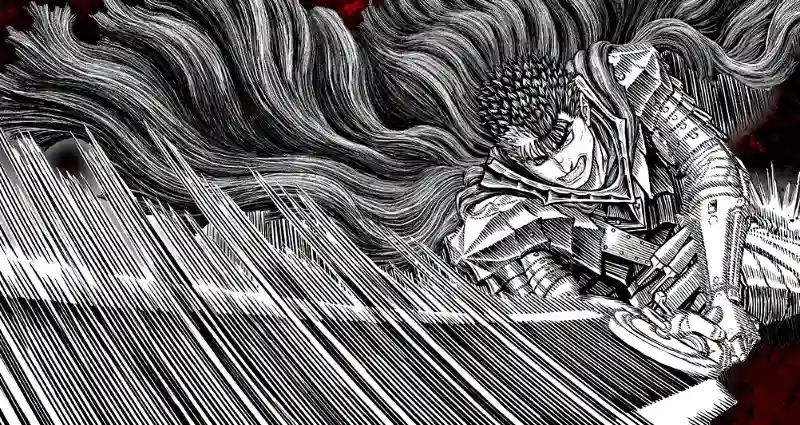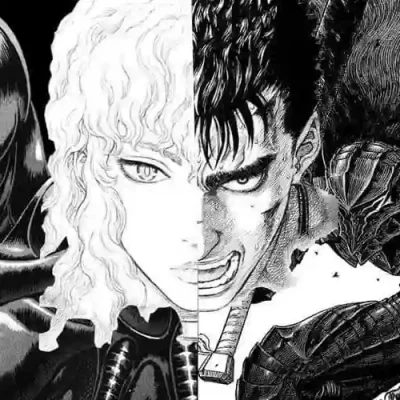Kentaro Miura’s “Berserk” is renowned for its dark and harrowing narrative, complex characters, and breathtaking artwork. At the heart of this epic dark fantasy lies the character of Casca, a woman whose tragic journey serves as the emotional core of the series. In this article, we will delve into Casca’s story, exploring her character, the profound impact she has on the narrative, and the emotional depth she brings to the world of “Berserk.”
Casca: The Early Years
Casca is introduced in the early chapters of “Berserk” as a skilled and fearless warrior within the Band of the Hawk, a mercenary group led by the charismatic Griffith. Her prowess in battle, unwavering loyalty to Griffith, and her complex relationship with Guts, the series’ protagonist, make her a compelling and multifaceted character from the outset.
Casca’s early years are marked by her determination to prove herself in a male-dominated world. Her struggles for recognition and respect among the Band of the Hawk reveal her resilience and inner strength. Casca is a character who refuses to be defined by societal expectations and gender norms, forging her path through sheer determination and skill.
The Eclipse: A Turning Point
The pivotal moment that forever alters Casca’s life and defines her character occurs during the Eclipse, a nightmarish event orchestrated by the God Hand, a group of powerful supernatural beings. The Eclipse is a brutal ritual in which members of the Band of the Hawk, including Casca, are subjected to gruesome and grotesque fates.
Casca’s trauma during the Eclipse is among the most profound in “Berserk.” She is violated and defiled by a monstrous entity, witnessing the horrific deaths of her comrades. This traumatic experience leaves her mentally shattered, and she is left with severe post-traumatic stress disorder (PTSD), rendering her unable to speak or care for herself.
The Emotional Toll
Casca’s tragic transformation from a fearless warrior to a vulnerable and dependent individual serves as the emotional core of “Berserk.” Her character embodies the series’ exploration of the human condition, trauma, and the impact of relentless ambition on those closest to its source.
The emotional toll of Casca’s trauma is depicted with excruciating detail. Her inability to communicate and her fragile mental state make her a profoundly tragic figure. Guts, who once admired and cared for her, is left devastated and torn between his desire for vengeance against Griffith and his commitment to protecting Casca.
The Relationship with Guts
The relationship between Casca and Guts is one of the most emotionally resonant aspects of “Berserk.” Initially, their dynamic is characterized by rivalry and tension, as Guts joins the Band of the Hawk and challenges Casca’s position as Griffith’s right-hand warrior. However, as the series progresses, their connection deepens into a complex and profound bond.
Casca and Guts find solace and companionship in each other amid the chaos and brutality of their world. Their relationship evolves from mutual respect to love, culminating in an intimate and emotionally charged moment before the Eclipse. This vulnerability and closeness make the tragic events of the Eclipse all the more devastating for both characters.
Guts’ Oath
Following the Eclipse, Guts takes on the responsibility of caring for Casca. His unwavering commitment to protecting her and seeking vengeance against Griffith becomes the driving force of his journey. Guts’ oath to protect Casca at all costs adds depth to his character and underscores the themes of sacrifice and the corrupting influence of power present throughout “Berserk.”
Guts’ struggle to balance his desire for vengeance with his responsibility to Casca is a central conflict in the series. His internal turmoil and the physical and emotional toll of his journey add layers of complexity to his character and highlight the depth of his love and devotion to Casca.
Casca’s Resilience
Despite the profound trauma she experiences, Casca’s character is marked by her resilience and inner strength. While she may be unable to speak or care for herself, her will to survive and her unwavering trust in Guts serve as a testament to her enduring spirit.
Casca’s resilience is evident in her ability to survive in a brutal and unforgiving world, relying on Guts for protection and care. Her character represents the enduring human spirit and the capacity to find strength and hope even in the darkest of circumstances.
The Quest for Healing
A significant portion of “Berserk” is dedicated to Guts’ quest to find a cure for Casca’s condition. His journey leads him to encounter various individuals and supernatural forces, all with their motives and agendas. This quest for healing becomes a central thread in the narrative, underscoring the enduring impact of Casca’s tragedy.
The idea of healing and redemption is a recurring theme in “Berserk,” and Casca’s character represents the possibility of finding light and solace amid the darkness. Her eventual recovery and the hope of restoring her to her former self become a driving force for Guts and a source of emotional catharsis for readers.
Conclusion
Casca’s tragic journey and her transformation from a fearless warrior to a vulnerable survivor serve as the emotional core of Kentaro Miura’s “Berserk.” Her character embodies the series’ exploration of trauma, resilience, and the human condition. Casca’s relationship with Guts, her unwavering spirit, and her quest for healing add depth and emotional resonance to the narrative, making her one of the most compelling and enduring characters in the world of manga. In “Berserk,” Casca’s tragedy is a poignant and profound reflection of the series’ enduring themes and its impact on readers’ hearts and minds.



